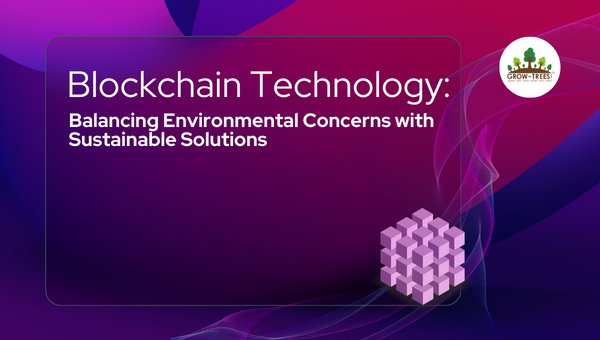Blockchain technology has garnered significant attention in recent years for its potential to revolutionise various industries, from finance to healthcare. Financial institutions leverage blockchain for faster and cost-effective cross-border payments, trade finance, and asset tokenization. In healthcare, blockchain facilitates secure and immutable storage of patient records, ensuring data integrity and interoperability among healthcare providers. In cryptocurrency, blockchain serves as the backbone for secure peer-to-peer transactions, enabling decentralised finance (DeFi) applications like lending, borrowing, and decentralised exchanges.
However, as the popularity of blockchain grows, so do concerns about its environmental impact. The decentralised nature of blockchain networks relies heavily on computing power, leading to high energy consumption and carbon emissions. This underscores the need to mitigate its carbon footprint and explore potential solutions for the same.
The Environmental Impact of Blockchain:
1. Energy Consumption:
One of the primary environmental concerns associated with blockchain technology is its substantial energy consumption. The consensus mechanisms used in blockchain networks, such as proof-of-work (PoW) and proof-of-stake (PoS), require vast amounts of computational power to validate transactions and secure the network. Bitcoin, the first and most well-known blockchain, operates on a PoW mechanism, which consumes an estimated 67-121 terawatt-hours (TWh) of electricity annually, comparable to the energy consumption of entire countries like Argentina or Ukraine.
2. Carbon Emissions:
The energy-intensive nature of blockchain mining contributes to significant carbon emissions, primarily due to the reliance on fossil fuels for electricity generation. A study published in the journal Joule estimated that Bitcoin mining alone produces between 22 and 22.9 million metric tons of carbon dioxide (CO2) emissions annually. To put it into perspective, this is equivalent to the energy use of 2.6 to 2.7 billion homes for one year. This level of emissions poses a considerable threat to global efforts to mitigate climate change.
3. E-Waste Generation:
In addition to energy consumption and carbon emissions, blockchain technology also contributes to the generation of electronic waste (e-waste). The specialised hardware used in mining operations has a limited lifespan and often becomes obsolete as mining difficulty increases or more energy-efficient hardware becomes available. As a result, outdated mining equipment contributes to the growing global e-waste problem, further exacerbating environmental concerns.
Is Blockchain Technology Net Sustainable?
While blockchain holds promise for promoting sustainability in various ways, the technology itself isn’t inherently sustainable in its current state. Eugene H. Spafford, internet pioneer and professor of computing sciences at Purdue, wrote, “Blockchain is overhyped right now. There is only a very small set of uses where it provides any advantages over centralised systems. Its speed and environmental impact do not make it attractive.” The hype surrounding Blockchains has exaggerated the realistic capabilities and applications of this new technology.
Whether it ultimately contributes to a net sustainability gain depends on several factors, including:
- The specific application and its impact on existing systems.
- The chosen consensus mechanism and its energy consumption.
- The integration of renewable energy sources and energy-efficient practices.
- Continued development of sustainable blockchain protocols and regulations.
Therefore, it is crucial to carefully evaluate each application and its broader context to determine whether blockchain truly offers a net sustainability gain in that specific scenario. The technology has the potential to be a force for good, but achieving that potential requires ongoing efforts towards addressing the environmental challenges and promoting responsible development.
Through collective action and innovation, we can harness the potential of blockchain technology while safeguarding the health of our planet for generations to come.
